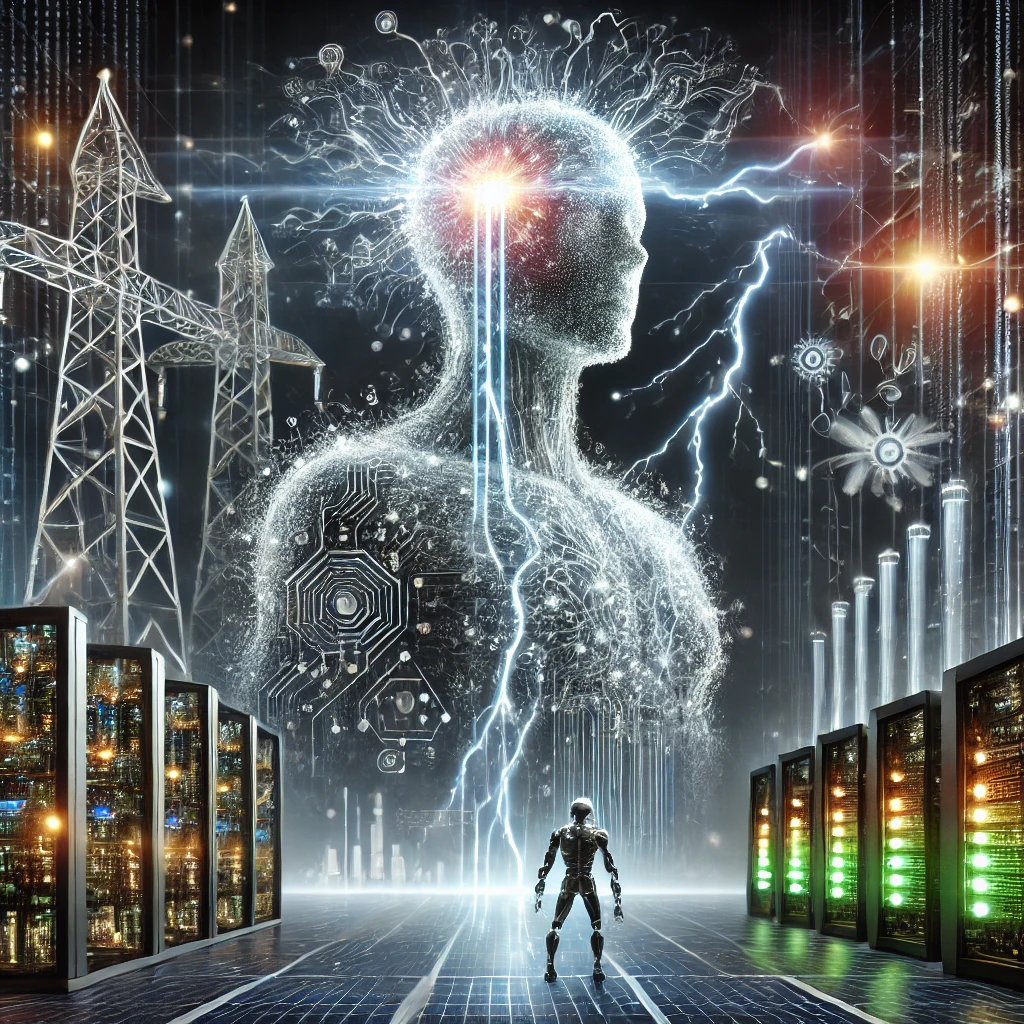The digital world is evolving rapidly, and AI agents are emerging as one of the most influential technologies in both consumer and enterprise environments. From automating support to streamlining workflows, AI agents are being built into software, websites, and mobile apps — often working behind the scenes. But what is an AI agent, and why is it important?
This article breaks down the definition of AI agents, how they differ from traditional bots, how they work, and the growing role they play in business, marketing, customer service, and automation. By the end, you’ll understand why AI agents matter and how to strategically leverage them — especially if you’re building or managing online systems.
At Best Website Builder Group, we help clients integrate intelligent agents into their websites and sales systems to maximize efficiency and scalability.

Defining an AI Agent
An AI agent is a software entity that uses artificial intelligence to perceive its environment, process information, and take actions to achieve a specific goal — usually without constant human supervision.
In more technical terms, an AI agent has:
- Perception: The ability to gather data (e.g., from sensors, input fields, user behavior)
- Processing: The ability to analyze, reason, or learn from the data
- Action: The ability to make decisions and carry out responses
This makes AI agents autonomous systems that can adapt and act based on context, feedback, or new inputs.
AI agents can be found in:
- Virtual assistants like Siri or Alexa
- Chatbots on websites or apps
- Automated sales outreach systems
- Self-driving cars
- Recommendation engines on eCommerce platforms
- Dynamic pricing engines
- Workflow automation tools (like GoHighLevel workflows or CRM bots)

The Difference Between AI Agents and Bots
Although often used interchangeably, AI agents are not the same as simple bots.
- A bot typically follows a script. For example, a chatbot that gives canned answers to FAQs without any contextual understanding.
- An AI agent, on the other hand, learns from interaction, responds based on intent or logic, and can adapt its behavior over time.
This distinction is critical when designing user experiences and automation flows. A static chatbot might be helpful for minor tasks, but a responsive AI agent can enhance engagement, increase conversions, and improve customer satisfaction.
For instance, the difference between a “Contact Us” chatbot and a real-time AI assistant that guides users to the right solution, recommends products, or books appointments is significant — both in complexity and in business value.
How AI Agents Work
To understand what is an AI agent, it’s useful to explore the architecture behind it. AI agents typically consist of the following components:
- Perception Module: Gathers data through sensors, APIs, user input, or web activity.
- Cognitive Engine: This is where reasoning happens. It could include rule-based logic, machine learning models, or natural language understanding.
- Decision-Making Module: Evaluates available options and determines the best course of action.
- Action Mechanism: Executes the chosen behavior (e.g., sending a message, updating a CRM, suggesting a product).
- Feedback Loop: Continuously learns from outcomes and user feedback to improve future performance.
In web environments, many AI agents run in the background. For example, tools like OpenAI’s GPT or Hugging Face’s Transformers power the intelligence, while front-end interfaces display outputs in chat windows, modals, or automation sequences.

Types of AI Agents
There are various types of AI agents, classified based on their complexity and autonomy:
- Simple Reflex Agents: Act based on current inputs only (e.g., rule-based logic).
- Model-Based Reflex Agents: Use memory or internal representations of the environment.
- Goal-Based Agents: Evaluate actions in terms of achieving specific outcomes.
- Utility-Based Agents: Make tradeoffs to maximize a utility function (e.g., conversion rate).
- Learning Agents: Use data over time to improve decisions and actions.
A digital marketing AI agent, for example, might start as a reflex system but evolve into a utility-based or learning agent as it receives more data from customer interactions.
Real-World Examples of AI Agents
AI agents are already integrated into tools you likely use:
- ChatGPT and Jasper: Act as AI agents for writing and research.
- GoHighLevel CRM Bots: Manage client interactions and respond to leads in real time.
- Shopify AI Tools: Recommend products, automate email flows, and adjust pricing.
- Drift or Intercom: Provide contextual customer support using AI agents on websites.
- Zapier AI Agents (beta): Automate complex workflows between apps using decision logic.
If you’re building a system for client acquisition or customer service, integrating an AI agent can help automate what would otherwise take hours of manual labor.

Benefits of Using AI Agents
Understanding what is an AI agent means recognizing the strategic advantages it offers:
- Time Savings: AI agents can handle hundreds of interactions simultaneously, freeing human teams to focus on higher-level work.
- 24/7 Availability: Unlike human staff, AI agents don’t need breaks, sleep, or time off.
- Scalability: As your business grows, AI agents can scale instantly with no increase in salary or hours.
- Consistency: AI agents follow logic and parameters consistently, which means fewer errors.
- Personalization: Smart agents can adapt to individual user behavior, improving the customer experience.
- Data Collection: Every interaction becomes a data point that helps improve processes, sales, or engagement.
At Best Website Builder Group, we use AI agents not just for convenience — but to boost lead conversion, client retention, and overall brand experience.
Considerations Before Deployment
While AI agents are powerful, they are not a one-size-fits-all solution. Here are a few considerations:
- Training Requirements: Some agents need large datasets to be effective.
- Integration Complexity: Tying AI agents into your CRM, website, or marketing tools requires technical planning.
- Tone and Personality: Poorly configured AI agents can frustrate users. It’s important to humanize their tone.
- Data Privacy: Ensure all AI interactions comply with GDPR, CCPA, and other data regulations.
- Fallbacks: Always give users a way to reach a human if needed.
That’s why having a seasoned web development team to integrate AI agents is so important. At Best Website Builder Group, we create tailored experiences — not generic automations.

The Future of AI Agents
AI agents are getting smarter. The next generation will likely include:
- Multi-modal Agents: Understanding and generating text, audio, and visual content.
- Autonomous Agents: Like Auto-GPT, which can complete multi-step tasks across the internet.
- Conversational Memory: Retaining long-term memory of user preferences.
- Emotional Recognition: Adjusting responses based on user tone or sentiment.
Eventually, many digital business processes — from onboarding to customer service to lead qualification — will be powered by AI agents that feel almost human.
Conclusion
So, what is an AI agent? It’s an intelligent, autonomous digital system that can perceive, process, and act — often improving with time. From eCommerce to SaaS platforms to service-based businesses, AI agents are changing how we build websites, run businesses, and connect with customers.
At Best Website Builder Group, we don’t just build beautiful, high-performing websites — we integrate the future. That means deploying AI agents that work smarter, faster, and more intuitively for your users — and your bottom line.
